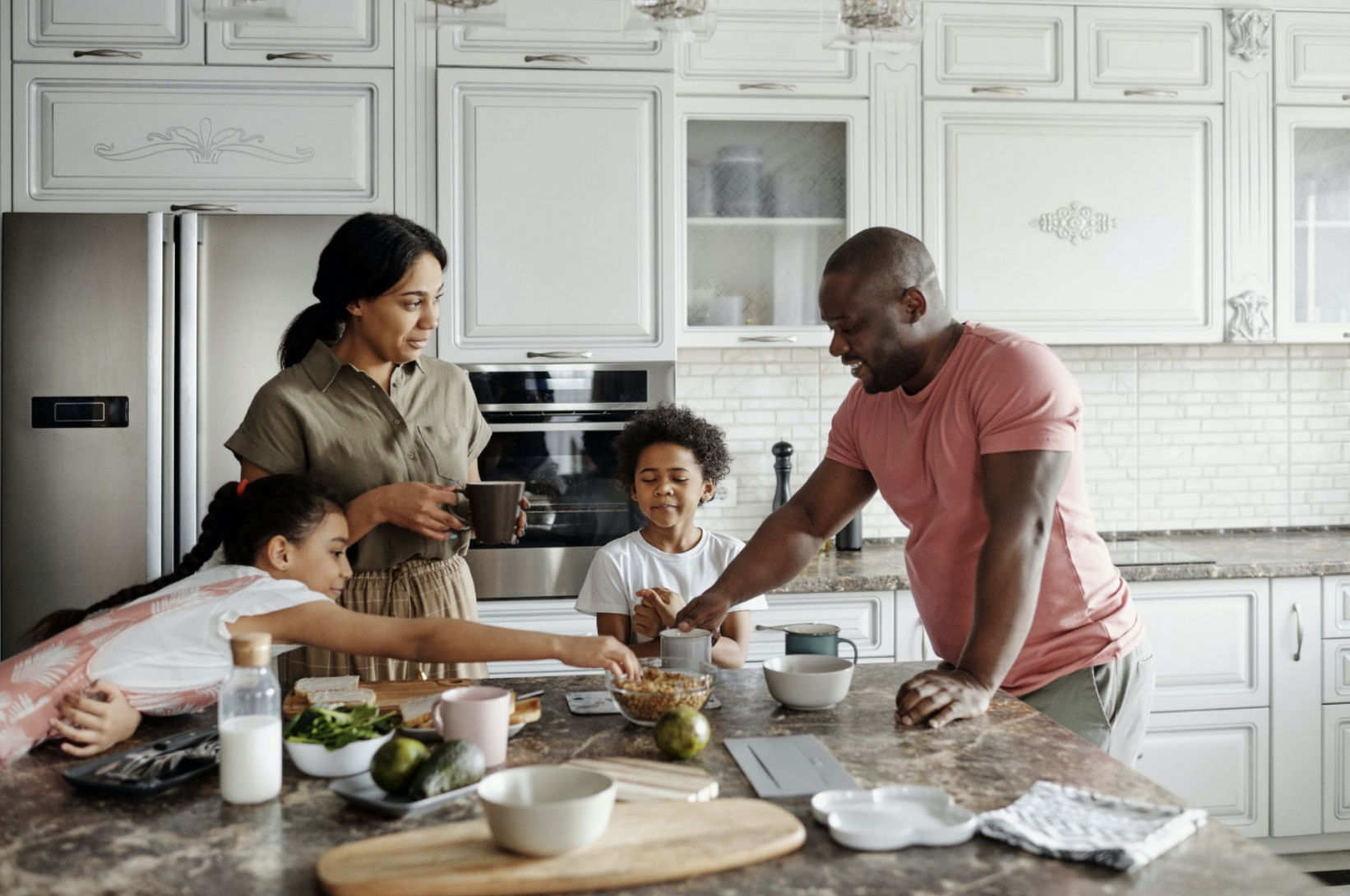Picture by August de Richelieu
Teaching kids about self-care plays an integral role in their growth towards becoming independent adults. While they are bound to face challenges at every age, having good self-care routines can help manage stress, form stronger relationships and lead a healthy life. In this blog by Bliss Planet, we’ll explore a few effective ways parents can pass on good self-care habits to their children.
Taking Care of Your Body
Good physical health is one of the pillars of a self-care routine. While kids may be too young to understand the intricacies of nutrition, here are two easy ways for teaching them how to remain physically fit:
- Eat Well: As reported by the British Nutrition Foundation, children should eat a healthy diet that includes all important nutrients such as protein, carbohydrates, calcium, fat, Vitamin A, C, D, and more. Additionally, it’s important to avoid including packaged products having high sugar and sodium content in their diet.
The food pyramid you may have grown up with has changed a bit, but a lot of the basics are still the same. Increase produce to five portions daily, make starchy foods around ⅓ of your daily intake, and always go for low-fat and low-sugar options when available.
- Engage in Physical Activity: On average, children should engage in at least an hour of vigorous physical activity a day, this can be accomplished by taking them to the playground, enrolling them in sports or dance clubs, and including them in your exercise routine.
To help your child learn and incorporate these healthy choices as part of their daily routine, you’ll need to be a role model and follow it yourself.
Living Outside of a Screen
Screen time has increased for most people over the last ten years, and research shows we are paying the price for it. A recent study regarding screen time and child and youth health indicated that there is a strong association between extended screen time and poor eating habits, depression, and lessened quality of life. Consistent exposure to screens can lead to short-sightedness and an increased likelihood of eye strain and headaches. Additionally, as children spend most of their time engaging in virtual content, it hinders the growth of their social skills, which can lead to further issues in the future.
As a parent, here are some effective steps you can take to reduce your child’s dependence on technology:
- Limit the use of electronics such as mobiles and tablets to 1-2 hours a day.
- Create screen-free zones in your home such as the dining table, garden, bedroom, etc.
- Depending on their preference, help your child find a hobby, such as drawing, playing an instrument, reading, etc.
- Set aside time each day for family activities which can involve playing board games, going outdoors, completing chores, and more.
- Limit your screen time to work hours as well.
Creating a Positive Home Environment
According to research, a positive home environment leads to children growing into healthier and happier adults. Here are a few ways to help rid your home of negativity:
- Declutter your home by getting rid of all excess, broken, and unused items. Ask your child to contribute to this process by disposing of toys or belongings they don’t use. Additionally, inculcate the habit of keeping the home neat at all times by cleaning areas after use, and placing items in their designated areas.
- When it comes to resolving conflicts, engage in meaningful dialogue rather than heated conflicts. Arguing in front of your child can lead them to model the behavior themselves. But, by witnessing you practicing negotiation and compromise, they will learn crucial de-escalation skills which will be fruitful for their future personal and professional relationships.
- Get out and do something together. Our home environment involves people, not just the location, and doing things together as a family deepens relationships. Take a trip to the zoo, visit the beach, or even take in a yankees game with the fam. And if these places aren’t nearby, use it as an excuse for a family getaway. No matter what you do, do it together and stay focused on the moment.
To help your child inculcate these habits, it’s important to be consistent in your actions. Failing to do so can confuse your child regarding expectations and acceptable behavior. The best way to maintain continuity is to constantly observe the child’s behavior and provide them with guidance and help when needed.
Teaching self-care to kids should be viewed as a long-term process. At times you can expect your child to show resilience towards incorporating habits, as they may view it as too restrictive. In times like these, it is important to reiterate the importance of self-care and the benefits it will have on their health.
Even if you feel like your modeling isn’t making a difference, you will likely see the results over time. As your child ages, they’ll become increasingly independent, and they’ll have your self-care advice and examples to fall back on even when they’re away from you. Just keep practicing what you preach, and keep learning about self-care through sources like Bliss Planet.
Learning and practicing self-care requires consistent effort, but the rewards are great for you and your family.





